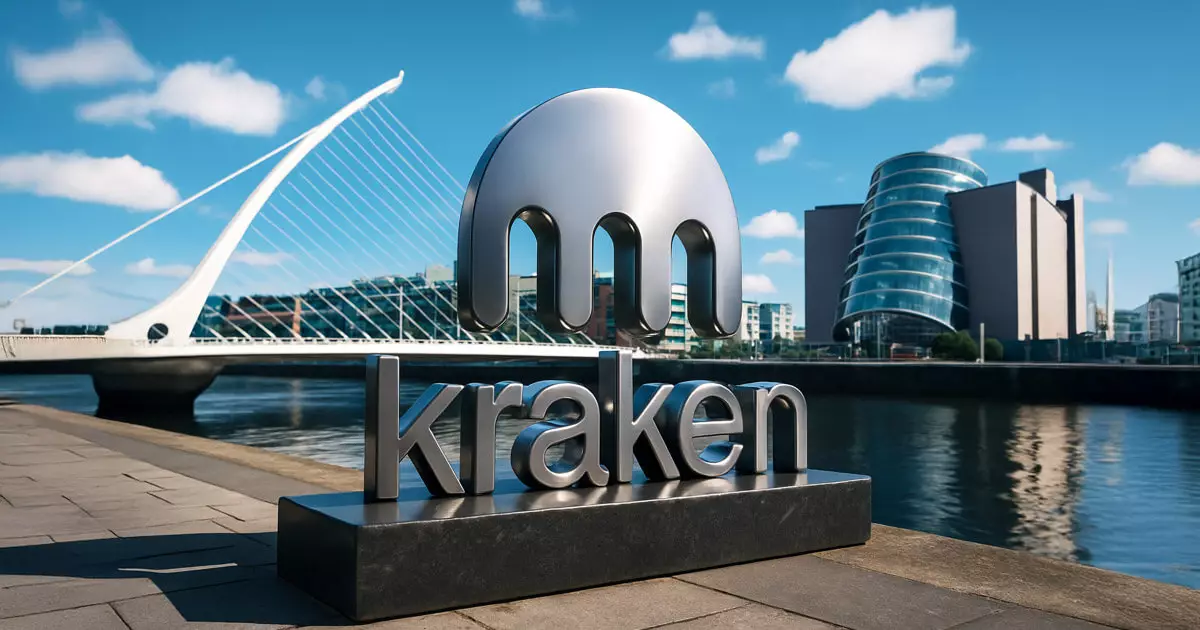In a significant development for the cryptocurrency landscape, Kraken has made history by becoming the first major global crypto exchange to secure a comprehensive Markets in Crypto-Assets (MiCA) license through the Central Bank of Ireland. This pioneering moment comes at a time when most crypto firms are scrambling to align with regulatory frameworks, further accentuating Kraken’s strategic foresight and commitment to staying ahead of the curve.
The MiCA license is not merely a badge of honor; it positions Kraken as a leader in an evolving regulatory framework that is designed to harmonize the disparate national regulations currently plaguing the European Economic Area (EEA). By being the early bird in securing this license, Kraken effectively sidesteps the looming compliance deadline and establishes itself as a trusted entity ready to offer regulated digital asset services across all 30 EEA countries.
The Advantage of a Unified Regulatory Framework
The MiCA framework, enacted in June 2023, aims to replace a confusing array of 27 national regulatory systems with a single, organized structure. For a sector that thrives on innovation and speed, this simplification is not just beneficial; it is essential. With this license, Kraken receives authorization for all seven regulated crypto activities, including custody, trading, and portfolio management. As digital assets mature, so too does the necessity for cohesive regulation that can foster growth while protecting stakeholders.
These developments are more than bureaucratic milestones; they signify a shift in how digital asset management will function in Europe. By consolidating its various operations in France, Italy, Spain, and the Netherlands under one regulatory umbrella, Kraken not only streamlines its operations but also sets the stage for enhanced consumer trust and institutional investment.
Tactical Moves and Strategic Partnerships
Kraken’s timing could not be more opportune, especially as competing exchanges like Coinbase are also racing to secure their own MiCA licenses. The competitive landscape in the crypto exchange arena is heating up, and agencies need to recognize that early compliance can provide significant strategic advantages. With passporting rights, streamlined onboarding, and expansive market access, securing a MiCA license could be the differentiating factor that allows Kraken and other forward-thinking firms to dominate the European market.
Furthermore, Kraken’s decision to deny the phasing out of five stablecoins, including Tether’s USDT, from EEA users speaks volumes about its adaptive strategies. By proactively aligning its offerings with MiCA’s stablecoin provisions, Kraken aims to meet regulatory expectations head-on rather than playing catch-up. This insight into their operational philosophy highlights a company that doesn’t just react to regulations but anticipates them—an admirable quality in today’s volatile market.
Technical Hurdles Ahead
While the MiCA license unlocks numerous opportunities for Kraken, it is critical to remember that the journey is not without hurdles. The regulatory landscape remains complex, with the potential for national regulators to impose additional anti-money laundering checks. These could create friction points for local onboarding, complicating the “harmonized” benefits that MiCA intends to offer.
The firm’s subsequent acquisition of a Cyprus-based entity for a Markets in Financial Instruments Directive (MiFID) license also underscores the rigorous compliance demands facing crypto exchanges today. As the MiCA license becomes effective upon its upload to the European Securities and Markets Authority’s central register, the timeline remains uncertain, adding a layer of complexity for Kraken and its peers.
Future Directions in a Fragmented Industry
The MiCA licensing is just the beginning of Kraken’s journey in a rapidly evolving environment. The firm has taken definitive steps toward establishing regulatory clarity, as evidenced by its early compliance actions and strategic acquisitions. However, the market is fraught with uncertainties, signaling that adaptability will be key for Kraken and other crypto exchanges in navigating compliance challenges.
As European regulators continue codifying rule sets that govern crypto activities, firms like Kraken that prioritize alignment with these evolving standards are likely to find themselves in positions of strength. The focus now shifts beyond mere compliance; the industry demands innovation coupled with regulatory savvy. To lead in this space, crypto exchanges will need to foster transparent blockchain practices while enhancing user experiences—an endeavor that will ultimately shape the future of the digital asset landscape across Europe and beyond.

